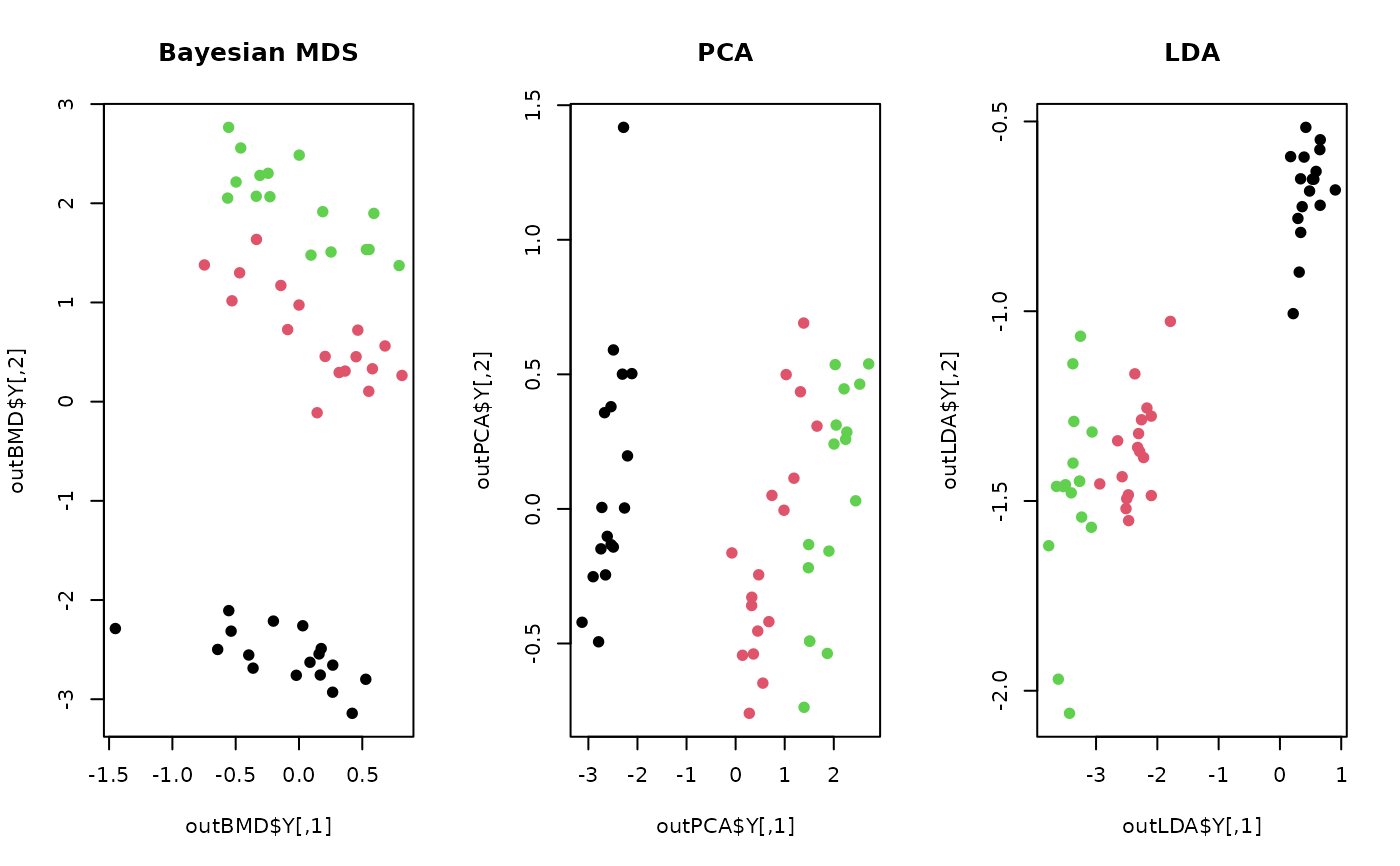A Bayesian formulation of classical Multidimensional Scaling is presented.
Even though this method is based on MCMC sampling, we only return maximum a posterior (MAP) estimate
that maximizes the posterior distribution. Due to its nature without any special tuning,
increasing mc.iter requires much computation. A note on the method is that
this algorithm does not return an explicit form of projection matrix so it's
classified in our package as a nonlinear method. Also, automatic dimension selection is not supported
for simplicity as well as consistency with other methods in the package.
do.bmds(
X,
ndim = 2,
par.a = 5,
par.alpha = 0.5,
par.step = 1,
mc.iter = 50,
print.progress = FALSE
)Arguments
- X
an \((n\times p)\) matrix whose rows are observations and columns represent independent variables.
- ndim
an integer-valued target dimension.
- par.a
hyperparameter for conjugate prior on variance term, i.e., \(\sigma^2 \sim IG(a,b)\). Note that \(b\) is chosen appropriately as in paper.
- par.alpha
hyperparameter for conjugate prior on diagonal term, i.e., \(\lambda_j \sim IG(\alpha, \beta_j)\). Note that \(\beta_j\) is chosen appropriately as in paper.
- par.step
stepsize for random-walk, which is standard deviation of Gaussian proposal.
- mc.iter
the number of MCMC iterations.
- print.progress
a logical;
TRUEto show iterations,FALSEotherwise (default:FALSE).
Value
a named Rdimtools S3 object containing
- Y
an \((n\times ndim)\) matrix whose rows are embedded observations.
- algorithm
name of the algorithm.
References
Oh M, Raftery AE (2001). “Bayesian Multidimensional Scaling and Choice of Dimension.” Journal of the American Statistical Association, 96(455), 1031--1044.
Examples
# \donttest{
## load iris data
data(iris)
set.seed(100)
subid = sample(1:150,50)
X = as.matrix(iris[subid,1:4])
label = as.factor(iris[subid,5])
## compare with other methods
outBMD <- do.bmds(X, ndim=2)
outPCA <- do.pca(X, ndim=2)
outLDA <- do.lda(X, label, ndim=2)
## visualize
opar <- par(no.readonly=TRUE)
par(mfrow=c(1,3))
plot(outBMD$Y, pch=19, col=label, main="Bayesian MDS")
plot(outPCA$Y, pch=19, col=label, main="PCA")
plot(outLDA$Y, pch=19, col=label, main="LDA")
 par(opar)
# }
par(opar)
# }